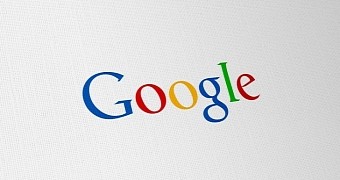Google is none too happy with the attitude News Corp has, especially after it wrote an open letter to Joaquin Almunia, the European Union competition commissioner in which the business practices of the search engine were criticized.
As you may remember, a letter signed by Robert Thompson, chief executive of Rupert Murdoch’s media giant, used some harsh words, saying that Google was a platform for piracy and accusing the Internet giant of changing its algorithm to ignore content from certain publications, which isn’t objective at all.
Google isn’t one to sit around and let things like this slide without taking a stance. In a blog post that starts with “Dear Rupert,” Google goes straight to the source of the complaint that was sent to the European Commission, rather than the one who signed it.
The company doesn’t just slam News Corp, but it takes apart the entire letter, answering to whatever issue was brought up by Thompson’s letter.
Google fights against online piracy
In regards to the “platform for piracy” comment, Google points out that it has done more than almost any other company to help fight against online piracy. In 2013, some 222 million web pages were removed from Google Search due to copyright infringement, and the average take-down time was pushed down to six hours.
Furthermore, it has invested tens of millions of dollars in an innovative technology, called ContentID, to tackle piracy on YouTube.
“Google is also an industry leader in combating child sexual abuse imagery online. We use hashing technology to remove illegal imagery from all our products and from the search index. We have safe modes for both Search and YouTube that filter out inappropriate content. And we are committed to protecting our users’ security. It’s why we remove malware from our search results and other products, and protect more than 1 billion users every day from phishing and malware with our Safe Browsing warnings,” Google writes.
Harder to access information?
The company also takes apart the claim that Google’s power makes it hard for people to access information independently and meaningfully.
Once more, Google states that despite what some people think, it is not the gatekeeper to the web, even though it is extremely popular in Europe. The company points out that there are huge numbers of readers that choose to go directly to news sites rather than visit them via Google.
Furthermore, the company says that there’s a lot of competition within search, including Amazon for product search, Kayak and Expedia for flights, Yelp and TripAdvisor for local information and so on, which many users pick directly.
“And when it comes to our answers versus other websites, Larry Page, our co-founder, has always believed that the perfect search engine would ‘understand exactly what you mean and give you back exactly what you want.’ Initially, ten blue links were the best answer we could give. But now we have the ability to provide direct answers to users' queries, which is much quicker and easier for them. If you are searching for the weather, you want the weather where you are, on the results page, not just links to weather sites. Or directions: if your query is ‘where is the nearest pharmacy?’, you want a map with directions, not just links to other sites. This is especially important on mobile where screens are smaller and typing is harder,” Google notes.
Regarding the accusation that Google makes ranking changes to punish small companies, the company scoffs, saying that it’s looking into improving people’s experience, not to punish small businesses. It admits, however, that Panda has caused drops in advertising revenue for some companies.
As for the gripe that Google routinely displays YouTube results at the top of its search pages, the company points out that a simple search for “videos of Robert Thomson News Corp” shows content from the BBC, Wall Street Journal, and even Nasdaq, which rank higher than YouTube.

 14 DAY TRIAL //
14 DAY TRIAL //